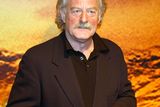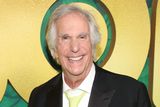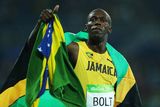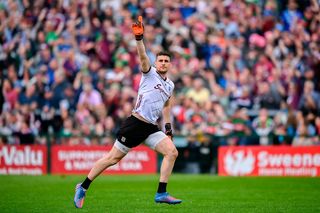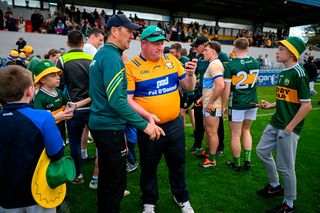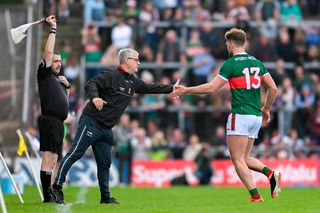The Big Interview: Javier Bardem
Javier Bardem's chilling and psychotic performance in the Coen Brothers' No Country For Old Men has already garnered talk of Oscars. But the actor takes it all in his stride. Interview by Paul Whitington
It's kind of hard to square the person in front of me with the character Javier Bardem plays in the explosive new Coen Brothers film, No Country For Old Men. Anton Chigurh is a repellent and ugly psychotic with a pudding-bowl haircut and a tendency to puncture people's heads with a pressurised cattle-gun.
But the gentleman facing me is a laid back, charismatic and strikingly handsome Madrileno who has no doubt broken many a heart. The difference is remarkable, and says a lot about Bardem's chameleon-like abilities.
His performance as Chigurh -- a relentless and chillingly calm assassin who seems to feel nothing more than mild amusement about his incessant killings -- is both mesmerising and disturbingly convincing. Actors always talk about having to like or in some way sympathise with the characters they're playing in order to inhabit them, but surely that can't have been easy with this creation.
"No," he smiles, shaking his head. "Did I like the guy when I read the screenplay? No, not at all. But then, when I read the novel [by Cormac McCarthy], I understood much better the philosophy behind the whole thing, and this idea about Chigurh and his 'principles'. So I saw that, in his own way, this is a complex guy. That helped me get a handle on him."
Anton Chigurh's 'principles' involve always going through with murders, no matter how horrible, and killing someone because he'd be breaking his word if he didn't. A charming creed to live your life by, but it gave Javier something to hang on to. "He's a guy of his word, in a way," he says, "and also a symbol, a violent fate that you have called for, the genie out of the lamp. And when violence shows up, it's impossible to destroy, it only creates misery and pain, and doesn't get you anywhere. So I said okay, it's not that I like the guy, but I like the idea behind the guy, I like what he represents."
For Bardem, a 38-year-old Spanish actor who's already impressed international audiences in films such as Before Night Falls and The Sea Inside, working with Joel and Ethan Coen was a dream come true. "It's not just because I'm promoting the movie that I'm saying this," he tells me, "but ever since I saw Blood Simple [the Coens' first film] I always dreamed of working with them, but it seemed unlikely. I mean, they always make these very deeply American movies where there's no obvious role for a foreigner, so when it happened I just couldn't believe it. I'm so proud to belong to a Coen brothers movie."
He was not quite so proud, however, to sport that awful, pudding-bowl haircut. "To be there on set for three months with that haircut, man, was really f***ing hard," he says, laughing. "The first time I saw it I felt really depressed, but in a way it helped me with the character, because you're a foreign actor in an American movie, a foreign guy in the landscape of Texas, you can barely speak the language and you have this weird look where people stare at you even when you go to the shop to buy milk -- it made me feel isolated, in the way that Chigurh might have."
Joel and Ethan Coen famously merge and share their directing, writing and producing duties in a way some actors can find confusing, but Bardem enjoyed the experience.
"They sort of become one," he says, "you almost forget that there are two people there -- it's like a monster with two heads! They always complement each other, they never argue, and everything is done in this seamless way where it's not like cut, and there are two guys talking to you. It's 'cut', and then one comes to you and says why don't you do this, and then the other one comes and says yes, and then on top of that, do that. And it's like the same thing: they ask for the same thing."
With No Country For Old Men already being tipped to clean up on Oscar night, Javier's remarkable performance is in the running for best supporting actor, and deserves at the very least a nomination. But the Spaniard is not getting too worked up about it. "Do I care? Well, like any other human being I like to be liked by others, but in a way I just don't, because you try to put everything into the work, and when the work is done the reaction to it is something that's entirely out of your hands." Whether he wins or not, Javier's head is unlikely to be turned by Hollywood, because he comes from a proud acting dynasty, and a tradition that has nothing to do with Tinseltown and its trinkets.
Born on March 1, 1969 in Las Palmas, Gran Canaria -- "it's owned by England," he tells me with a grin, sparking up another Marlboro Light -- Javier and his parents moved to Madrid when he was three, and he considers the capital his home. His mother, Pilar, is a celebrated theatre actress, and the thespian tradition stretches back to Javier's great grandparents, and a time, as he pithily puts it, when "actors were not allowed to be buried on sacred ground because they were either homosexuals or prostitutes".
He made his debut in a film called El Picaro ('The Scoundrel') at age six, but when he left school he did not initially fancy the idea of following in his mother's illustrious footsteps. Instead, he studied painting at Madrid's Escuela de Artes y Officios, and he still paints to this day -- "for myself, it helps me to relax". He also found time to captain the Spanish national rugby team -- "I was prop," he tells me proudly. "I wasn't that big, but I was tough!"
Gradually, though, he started to realise that "there was no way out, acting was in my blood whether I liked it or not. And once I realised that, I started to prepare myself, because in Spain I have an important surname, and you want to be respectful with that."
He started in the theatre, where he found the burden of being a Bardem initially heavy, but he came more into his own once he began to work in film. His big break in Spain came in 1992, when he played a stud in the black comedy, Jamon, Jamon, whose huge success made him an overnight star. "I was 20 or 21," he remembers, "and on the Friday morning I was Mr Nobody and then on Saturday morning after the screening I was the next big thing. And you were like what the f*** is this? -- it's so out of control."
As far as Bardem is concerned, fame is a regrettable by-product of his profession. "It was fun at first because you're 20 years old and everyone is giving you all this attention, but after a very brief while -- I would say maybe a couple of months -- I said this is bad, there is nothing good in this, and I still think the same. I mean I'm doing this, so it's a contradiction, but this is a film I like, and I really want to support it. But there's a moment where you go, enough! I mean it's only a movie for Christ's sake ... "
The media attention, though -- which for Javier has been intense for some years now in Spain -- is only likely to grow, because after No Country For Old Men Bardem will star in Mike Newell's major adaptation of Gabriel Garcia Marquez' Love In The Time Of Cholera, and then in Woody Allen's next offering Vicky Cristina Barcelona. So what was it like working with the world's most famous New Yorker?
"The way he works is, you read a script -- if you're very lucky -- and then there's no rehearsals, no warm-ups, and he does everything in one take. That's the way he works: one take and no cuts, and the other difficult thing is that you're often improvising, which in Spanish is fine but in English, I'm not so hot."
Allen's Barcelona shoot was soured by controversy following (as it turned out, spurious) allegations that he had been awarded public funding at the expense of domestic film-makers, which led the director to swear he'd never work in Spain again. But Bardem found him "very warm, very caring, very nice in his own way, but very protective, I mean in a good way, protective of the people around him. But when he works, he works hard, and you've really got to be ready." As to his performance in Woody's film, however, Javier is as much in the dark as we are.
"I haven't seen a second of it," he shrugs. "He works with the monitor so there's no way to see anything, so it's gonna be a surprise -- good or bad!"
Can't see our clip? Try these links: RealPlayer Quicktime Windows Media Player
No Country For Old Men opens today.
Join the Irish Independent WhatsApp channel
Stay up to date with all the latest news
